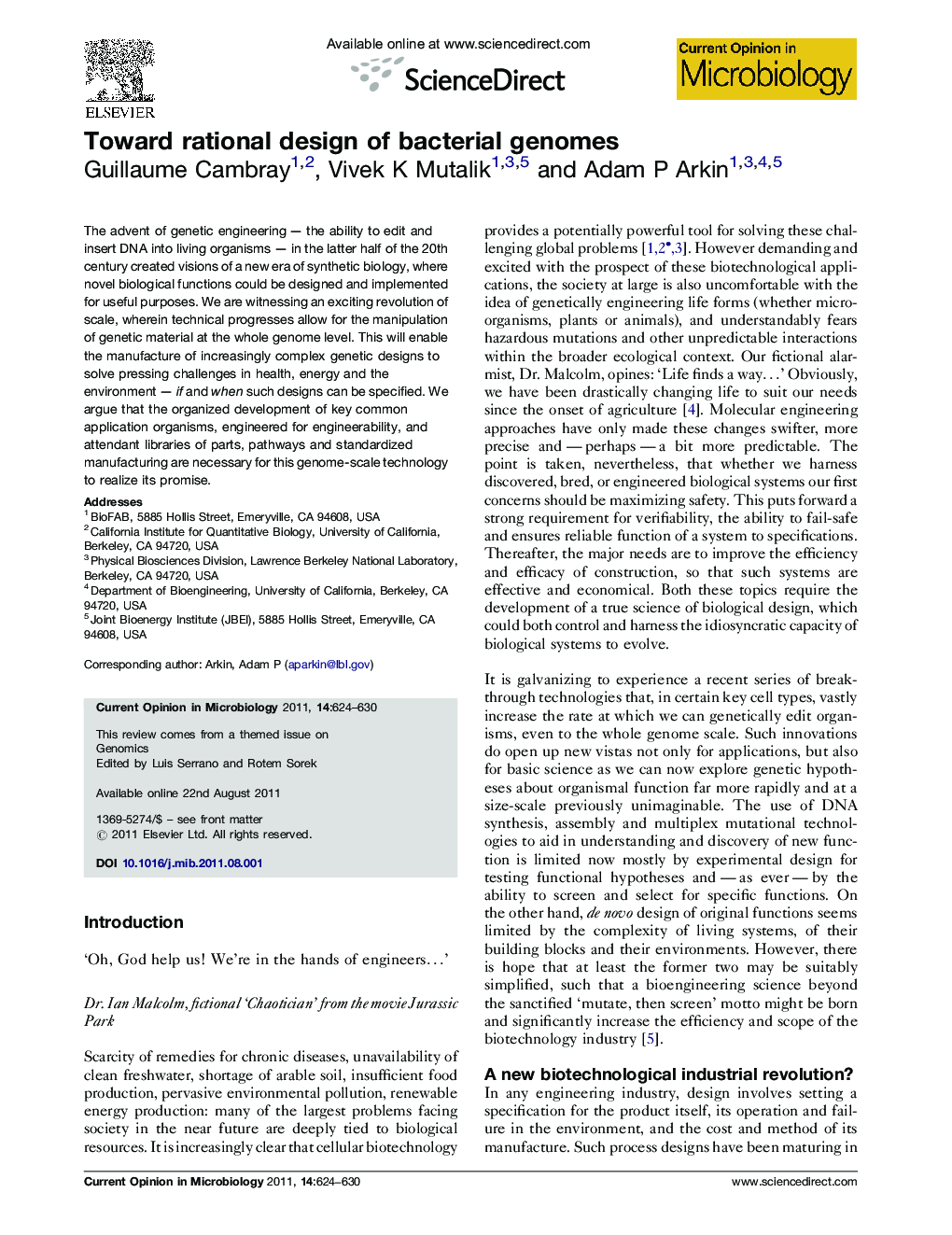| Article ID | Journal | Published Year | Pages | File Type |
|---|---|---|---|---|
| 3399220 | Current Opinion in Microbiology | 2011 | 7 Pages |
The advent of genetic engineering — the ability to edit and insert DNA into living organisms — in the latter half of the 20th century created visions of a new era of synthetic biology, where novel biological functions could be designed and implemented for useful purposes. We are witnessing an exciting revolution of scale, wherein technical progresses allow for the manipulation of genetic material at the whole genome level. This will enable the manufacture of increasingly complex genetic designs to solve pressing challenges in health, energy and the environment — if and when such designs can be specified. We argue that the organized development of key common application organisms, engineered for engineerability, and attendant libraries of parts, pathways and standardized manufacturing are necessary for this genome-scale technology to realize its promise.
► Complex ‘beyond bioreactors’ applications of bioengineering demands exquisite genetic control, to enable verifiable designs and further foster societal acceptance. ► Current capacities to synthesize and assemble DNA largely supersede capabilities to rationally design genetic systems. ► The establishment of streamlined genomic chasses and the development and understanding of standardized functional components are critical requirements. ► Increasingly rational directed evolution using standard parts and controlled evolution in vivo is essential to engineer biology.
